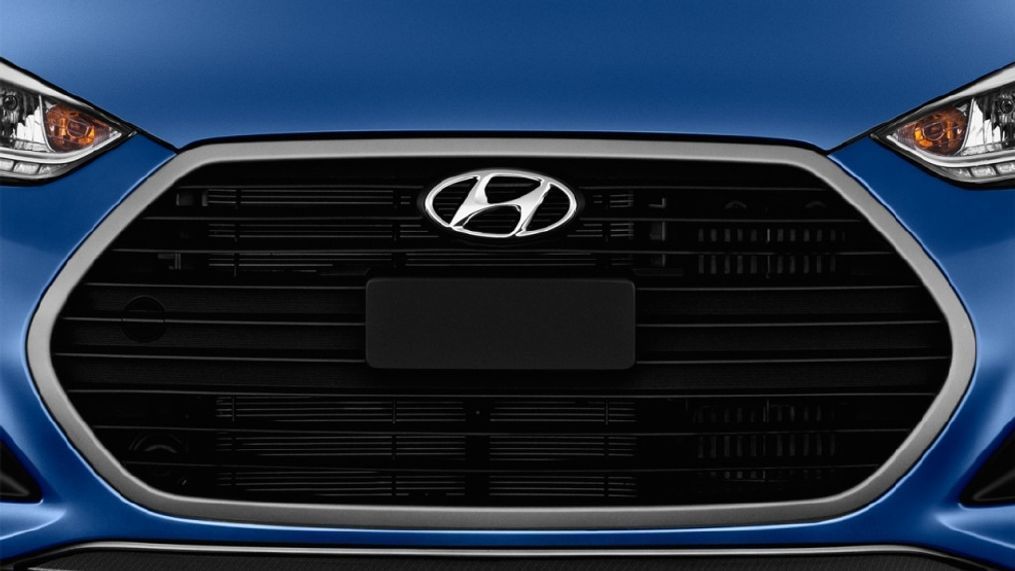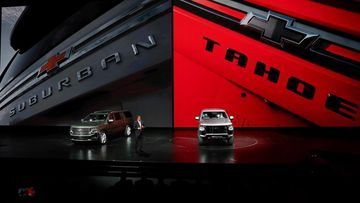Hyundai to launch all-electric SUV in 2018

Carmakers need to launch more plug-in electric vehicles to meet global regulations on emission reduction and energy efficiency.
And small to mid-size SUVs are the fastest-growing segment in auto markets around the world.
Now we learn that Hyundai is planning to launch a dedicated all-electric SUV with 200 miles of range within two years.
DON'T MISS: 2017 Hyundai Ioniq debuts in NY: 110-mile Electric range, 25-plus for Plug-In
The news comes from the Korea Herald (via Hyundai-Blog), which quotes an unnamed spokesperson confirming that the company will "launch a new electric SUV" by 2018.
It will use different underpinnings than the recently launched 2017 Hyundai Ioniq, a range of hybrid, battery-electric, and plug-in hybrid models that will start to appear at dealers very late this year.
But Hyundai's electric SUV is expected to ride on a dedicated platform as well, which would likely be required to accommodate the large battery pack necessary for an SUV with a range of 200 miles.
Hyundai-Blog suggests, without a source, that the electric SUV may also be offered with a larger-capacity pack yet, giving it a range of up to 300 miles.
That first 200-mile range, incidentally, is given as 320 kilometers, and is likely measured on the Korean test cyclewhich could be the equivalent of only 140 to 160 miles on the tougher U.S. EPA cycle.
The larger pack might be required to get the U.S. range rating above the 200-mile mark, but at the moment, this remains conjecture.
CHECK OUT: Next Hyundai fuel-cell vehicle to be another SUV
Like the dedicated Ioniq platform, which is shared by Hyundai's sister brand Kia in the form of the Niro "hybrid utility vehicle," the new all-electric SUV architecture will likely spawn a Kia variant as well.
It's "noteworthy," analyst Kim Jin-woo of Korea Investment Securities told the Herald, that Hyundai is focusing on SUVs for its upcoming all-electric vehicle.
Kim attributes that to the better market reception for the Kia Niro hybrid "SUV" than for the Ioniq hybrid hatchback built on the same underpinnings.
Whether the electric Hyundai crossover SUV will offer all-wheel drive remains unclear; the Niro hybrid, despite being identified as a utility vehicle, does notand Kia has said it has no plans to add that capability to the vehicle.
Hyundai's electric SUV probably also shares its platform with the Korean maker's previously disclosed dedicated hydrogen fuel-cell SUV, to be launched before the end of the decade with a range that could be as high as 500 miles (again most likely on the Korean test cycle).
That vehicle will replace the current Hyundai Tucson Fuel Cell, a hydrogen conversion of the last-generation compact crossover utility vehicle that is sold only in limited volumes in specific areas of Southern California where a hydrogen fueling infrastructure exists.
It seems unlikely that Hyundai would develop two separate, all-new, dedicated electric-drive SUVs, so expect some sharing of components between the battery-electric and hydrogen fuel-cell powertrains.
That would follow the lead of the upcoming Honda Clarity, to be launched first as a Fuel Cell version, followed by Electric and then Plug-In Hybrid versions.
The upcoming Hyundai electric SUV, however, may forgo the versions with combustion engines altogether, which could simplify the design of frontal crash structures.
Hyundai-Kia has set itself a goal of selling more green cars by 2020 than any other maker except Toyota, which has now sold more than 8 million hybrid vehicles over 18 years.
Read more from Internet Brands Automotive:
- Tesla's upgraded Model S is the first 300-mile electric car
- 2019 BMW X3 M spy shots
- Ford brands new diesels EcoBlue
- Lego unveils its take on the Porsche 911 GT3 RS
- 2016 BMW X1 first drive review
_______________________________________














![Image for story: 2020 Hyundai Sonata: Upping the ante on midsize sedans [First Look]](/resources/media2/16x9/full/360/center/80/0757332b-e97b-480c-9b65-b974626ec93e-large16x9_2020HyundaiSonataLimited29.jpg)